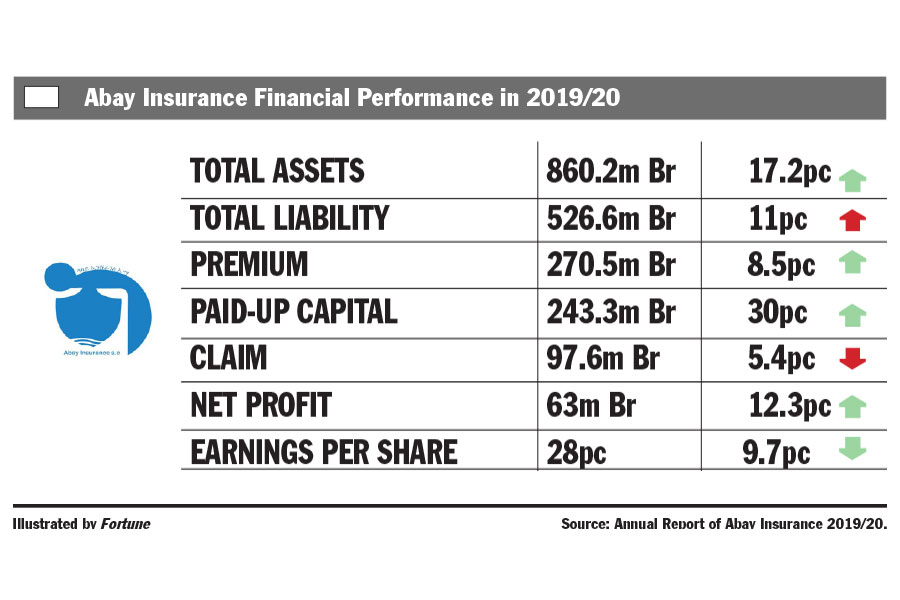
Radar | Apr 29,2023
Aug 16 , 2025
By Pepukaye Bardouille , Mahmoud Mohieldin
The IMF and World Bank are reviewing their Debt Sustainability Framework for low-income countries, creating an opportunity for emerging markets and developing economies to push for methodologies that reflect the economic benefits of climate adaptation. In this commentary provided by Project Syndicate (PS), Pepukaye Bardouille, director of the Bridgetown Initiative and special adviser on climate resilience to the Barbados Prime Minister's Office, and Mahmoud Mohieldin, UN special envoy on financing the 2030 SDG and co-chair of the Expert Group on Debt, argue that climate and nature shocks have become an economic reality, not a distant threat.
For emerging markets and developing economies (EMDEs), investing in resilience is not a luxury. It is an imperative. Climate disasters and ecological degradation are impeding their economic prospects and straining their finances. Perhaps more importantly, these shocks are exacerbating unsustainable debt burdens at a time when donor countries are slashing development aid, making it harder for EMDEs to finance investments in climate adaptation.
Over the past two decades, the 74 economies comprising the Climate Vulnerable Forum and the Vulnerable Group of Twenty have suffered losses exceeding 525 billion dollars, equivalent to roughly 20pc of their collective GDP, due to climate-related shocks. This includes acute disasters, such as floods, hurricanes, and droughts, as well as slower-moving events, including desertification and coastal erosion.
Meanwhile, the degradation of natural ecosystems through deforestation and biodiversity loss has aggravated food and water insecurity as well as increased climate risks by eliminating natural carbon sinks. These dynamics create formidable obstacles, such as limited fiscal space and high capital costs, that trap countries in a vicious cycle of vulnerability. Breaking free requires a major scaling up in financing for climate adaptation efforts.
The Sharm El-Sheikh Adaptation Agenda, launched in 2022, proposes 30 adaptation targets in key sectors such as agriculture, public health, and infrastructure with the goal of spurring inclusive, effective, and equitable action by 2030. The proposed outcomes are not merely defensive; they create jobs, boost productivity, and improve creditworthiness. Unfortunately, these benefits are not reflected in current macroeconomic frameworks.
The problem is structural. Existing macro-fiscal tools, such as the debt-sustainability frameworks used by the International Monetary Fund (IMF), the World Bank, and, by extension, sovereign credit ratings, account for climate- and nature-related risks but do not sufficiently recognise the economic benefits of reducing those risks. Natural disasters (climate-related or otherwise) are (rightly) treated as threats to fiscal stability.
But, the investments required to mitigate their effects are seen only as adding to the debt burden, rather than as critical for reducing losses or as driving the development of growth-enhancing strategic assets. For example, investments in flood-resilient infrastructure in Vietnam have not only reduced damage costs but also boosted land values, improved public health, and increased worker productivity. Investments in nature-based solutions, such as restoring mangroves and wetlands, can simultaneously address climate, food, and water challenges, while also enhancing the performance of infrastructure.
High-impact interventions, such as coastal defences, underground power lines, and mangrove restoration, are often sidelined in favour of more conventional infrastructure projects, including roads, bridges, and ports.
These perverse incentives are reflected in EMDEs' planning and budgeting processes. The environment ministries that oversee Nationally Determined Contributions (NDCs) and National Adaptation Plans (NAPs) under the Paris Climate Agreement tend not to engage systematically with finance ministries, resulting in these resilience strategies not being fully integrated into medium- and long-term national financial planning. That leaves NDCs and NAPs at risk of being aspirational, rather than actionable.
With critical adaptation investments overlooked in budgets, and with insufficient volumes of grant or concessional finance to plug ensuing gaps, many are calling for changes in how debt is treated, including reforms of fiscal frameworks so that investments in climate and nature resilience are treated as productive. A recent paper by the Bridgetown Initiative outlines four steps that governments can take to achieve this goal.
EMDEs should quantify acute and chronic climate and nature risks. A better understanding of the potential macroeconomic effects can help guide assessments of the financing required to reduce those risks. The paper offers a new typology to help categorise investments by risk type and sector, which would streamline the process.
Once policymakers have identified which investments are needed, they should assess their impact on the economy's growth trajectory. Investing in resilience measures can mitigate future losses from climate disasters, enhance productivity, and increase incomes. These benefits should be incorporated into forecasting models, as is already done for traditional infrastructure investments.
The long-term growth benefits of resilience-focused capital projects could then be factored into debt-sustainability analyses. This would demonstrate that such investments are, in fact, fiscally prudent under the right financing conditions, thereby strengthening the case for more concessional and longer-term borrowing.
Lastly, with a more comprehensive understanding of the macroeconomic effects of resilience-based interventions, EMDEs can devise credible investment plans and financing strategies that align with fiscal and budgetary policy.
Factoring climate resilience into macroeconomic planning should strengthen, not diminish, a country's growth narrative. When done well, this empowers finance ministries to engage more effectively with donors, credit-rating agencies, markets, and international financial institutions, all of which play a critical direct or indirect role in supporting resilience and adaptation efforts.
With the IMF and the World Bank reviewing their Debt Sustainability Framework for Low-Income Countries, this is an opportune time for EMDEs to update their methodologies to reflect the benefits of adaptation measures. Climate and nature shocks are now an economic reality, not a distant threat. Building resilience to these shocks will form the foundation of sustainable development and fiscal stability for years to come.
PUBLISHED ON
Aug 16,2025 [ VOL
26 , NO
1320]

Radar | Apr 29,2023

Fortune News | Dec 19,2020

Fortune News | Jan 16,2021

Exclusive Interviews | Jan 24,2023

Viewpoints | Jul 20,2024

My Opinion | Jul 07,2024

Viewpoints | Dec 09,2023

Radar | Aug 23,2025

Radar | Jan 28,2023

Viewpoints | Nov 16,2024

Photo Gallery | 170113 Views | May 06,2019

Photo Gallery | 160360 Views | Apr 26,2019

Photo Gallery | 149970 Views | Oct 06,2021

My Opinion | 136226 Views | Aug 14,2021





Dec 22 , 2024 . By TIZITA SHEWAFERAW
Charged with transforming colossal state-owned enterprises into modern and competitiv...

Aug 18 , 2024 . By AKSAH ITALO
Although predictable Yonas Zerihun's job in the ride-hailing service is not immune to...

Jul 28 , 2024 . By TIZITA SHEWAFERAW
Unhabitual, perhaps too many, Samuel Gebreyohannes, 38, used to occasionally enjoy a couple of beers at breakfast. However, he recently swit...

Jul 13 , 2024 . By AKSAH ITALO
Investors who rely on tractors, trucks, and field vehicles for commuting, transporting commodities, and f...

Oct 4 , 2025
Eyob Tekalegn (PhD) had been in the Governor's chair for only weeks when, on Septembe...

Sep 27 , 2025
Four years into an experiment with “shock therapy” in education, the national moo...

Sep 20 , 2025
Getachew Reda's return to the national stage was always going to stir attention. Once...

Sep 13 , 2025
At its launch in Nairobi two years ago, the Africa Climate Summit was billed as the f...

Oct 5 , 2025 . By NAHOM AYELE
In Meqelle, a name long associated with industrial grit and regional pride is undergo...

Oct 5 , 2025 . By BEZAWIT HULUAGER
The federal government is set to roll out a new "motor vehicle circulation tax" in th...

Oct 5 , 2025 . By NAHOM AYELE
The Bank of Abyssinia is wrestling with the loss of a prime plot of land once leased...

Oct 5 , 2025 . By BEZAWIT HULUAGER
The Customs Commission has introduced new tariffs on a wide range of imported goods i...